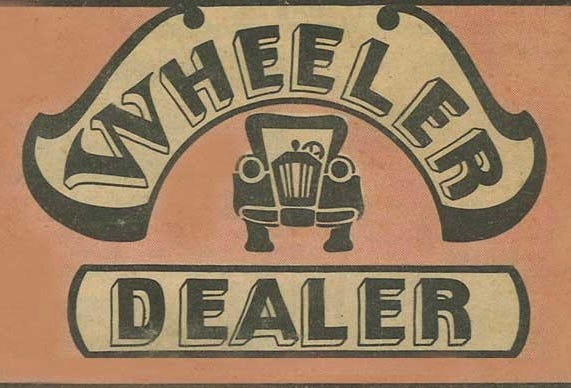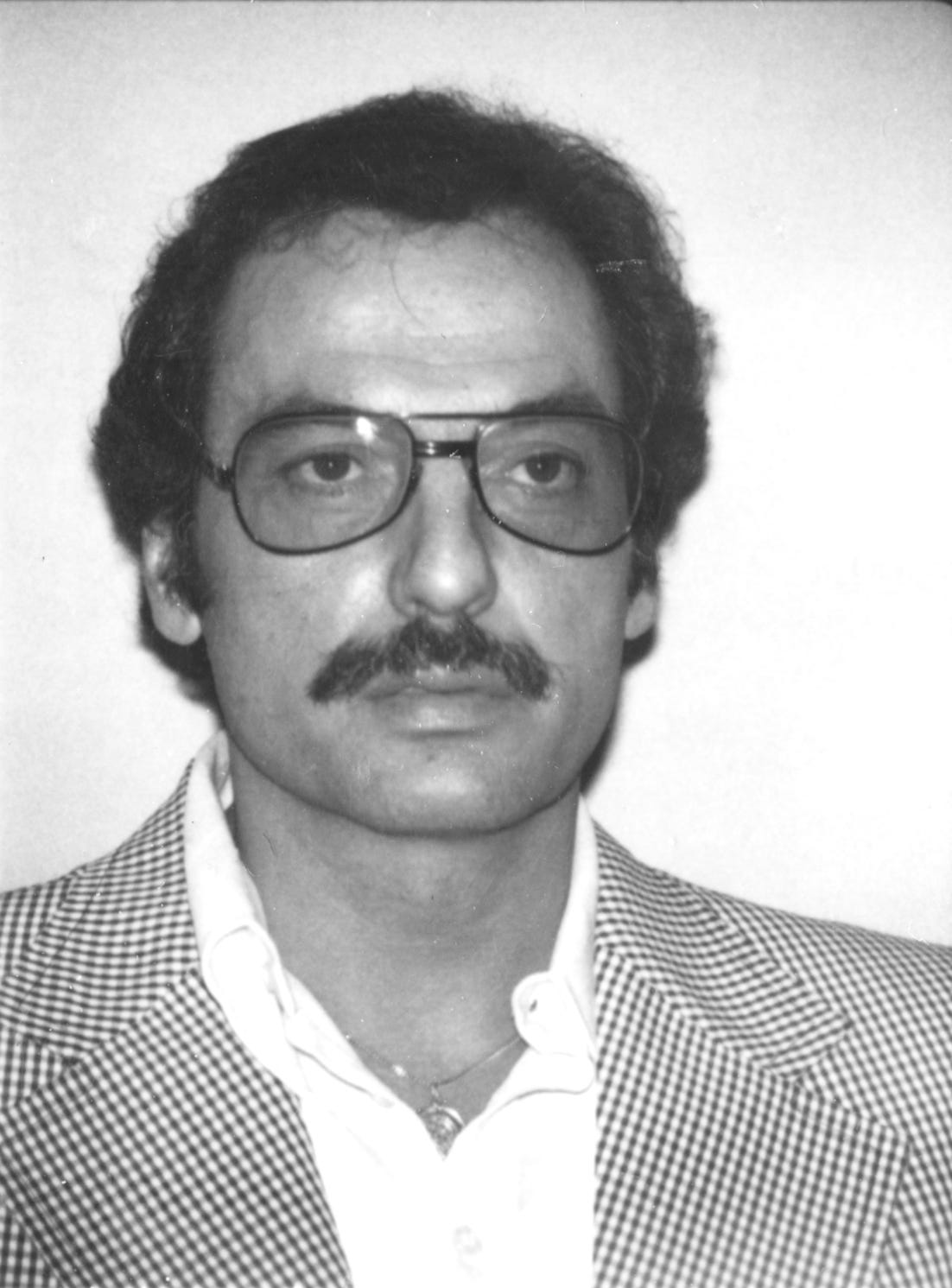WHEELER DEALER: Chapter 5
Once Leonard Lee sits himself back up in his TV chair, Roger informs him they are now partners in the meth business. Over the next few days Lee introduces Roger to his partner Tak Kusama, a middle-aged organic chemist who turns out to be the outfit’s chief cook.
Roger sets Tak up on a barge with a trailer house lab which they tow up the Columbia River from Portland to Washougal and back every day. What with Tak’s manufacturing expertise and his own undoubted marketing skills, Roger, who is twenty-two, which is old enough to know better, very quickly takes over the Portland meth market.
He's got maybe fifteen people slinging for him plus two open-air markets – sort of daily outdoor drug festivals – at Laurelhurst Park and Lair Hill. It’s almost a party scene, with guitar-strumming minstrels and couples sunning themselves on blankets. Elements of the quickly disappearing marijuana scene and the new meth culture, side by side.
Portland mayor Frank Ivancie, who has vowed to stamp out this counter-culture outrage, arrives one afternoon at Lair Hill Park with a police escourt, determined to take the place by storm. The local hippies, however, having been forewarned, are armed with dozens of raw eggs which they fling down upon and the advancing forces of law and order. Ivancie and his entourage beat a quick retreat.
It’s also about this time that Roger meets Cheryl, a seventeen-year-old high school senior who falls for Roger when she starts coming over with her girlfriends to take in the Lair Hill scene. Her age alone is enough to scare Roger, who’s got enough legal worries already, but each time he puts her in a cab and sends her home, she’s back a couple of days later, so what’re you going to do?
Before anyone gets too wistful about these long-ago days, though, it’s probably well to remember that in addition to these party scenes at Lair Hill and Laurelhurst Park, Roger has a shooting gallery at 37th and Belmont for the more dedicated meth heads. And at both Lair Hill and Laurelhurst, at least a couple of armed employees to collect over-due debts and discourage ripoffs. As he’s also made quite clear, no one else is permitted to engage the meth business in Portland.
“People would come in and tell me, hey, so-and-so’s moving some speed in town, so I’d go over and try to negotiate with them. Explain to them, you know, I front all my drug. And if somebody owes me, I make sure I get my money because I’m the only source.
“I mean, I’d try to do business with them first. I’d say I’ll buy your drug from you and sell it for exactly what I sell it for, which is $1200 a pound or $125 an ounce, and if they didn’t go for it, then shame on them. I would put the vultures on them. They would go over and rob them so good they’d even take their furniture.”
Donnie Crips, who of course is slinging for Roger, has a customer up in Longview, Washington, who’s working at the national guard armory there as a civilian. When the guy gets behind on his meth payments he comes down to Portland with a few pistols and asks if they’d be interested in doing a trade. Why sure, says Roger.
Very soon Roger finds himself the proud owner of nine M-14s and a 50-caliber sniper rifle. As genuinely nuts as this sounds today, he thinks this arsenal will be of great value to him when the revolution comes down. Roger, in fact, has been planning for some time that when this does in fact occur, and the entire social order collapses into chaos – which could happen any day now according to everything he’s been reading in the Berkeley Barb – he will take over two particular square blocks on Belmont. Exactly what he will do with them he’s not sure, but the plan is that they will be his.
And Roger isn’t the only one so affected. The Portland Black Panthers, who also have revolutionary aspirations, have learned about Roger’s stash of military weapons – apparently from Chili Willie, who was Roger’s original weed source at Amato’s – and they send word that they might be interested in making a purchase.
So Roger sets up a meeting at his place. But just to make sure, he puts Crips in the closet before they arrive. One of them, as it turns out, is a guy named Curtis who Roger had done time with at MacLaren.
“So I had one of the M-14s laying on the bed there. They looked at it and asked how much I wanted for it. I said $400. And then they started talking about the revolution and all that, and how you’re either part of the solution or you’re part of the problem. Which is when I started suspecting that they were going to rob me.
“So I say, hey, this is a business deal. If you want them, come up with some money or nothing doing. Then they give me some more stuff about being part of the revolution. I could see that they were armed and might be ready to try something, so I say, hey Donnie, step out of the closet. And Donnie steps out with a shotgun and that’s pretty much the end of that. They say they’ve got to go back home and think some more about it.”
More adventures in the black part of town: Roger is now doing business with a heroin dealer with the charming nickname Big Poop – given name Roma Ollison. And one day, just as Roger is leaving Big Poop’s house, who should appear but his old nemesis from the Portland narcotics squad, John Giani. It was Giani, of course, who set Roger three years ago with the three-joint under-cover marijuana bust.
Giani says, “You know what your big problem is, Shirley? You don’t get with the program.” And of course he’s right, because as Roger and everyone else knows, if you want to get ahead in the drug business you’ve got work with the cops.
Since both parties to an illegal drug deal have every interest in keeping it secret, about the only thing the poor narcotics cops can do, besides going undercover themselves, is to team up with one set of drug dealers and get them to turn in their competition. In exchange, of course, the cooperating dealers get a virtually free ride. Given Roger’s me-against-them approach to dealing with the world, this is something he’ll probably always be unwilling to do.
Giani certainly knows how to play the game, though. A woman who ran the top call girl operation in town at the time (see my book Rose City Vice) says that every week or so she’d slip a couple $100 bills under his placemat at the Prime Rib as a token of her appreciation for a heads-up whenever there was a problem on the horizon. In fact, Giani’s own sister-in-law was one of the most popular girls in her stable. And as a narcotics officer, Giani enforced the law by protecting some of the biggest heroin dealers in town, including of course Big Poop.
As Roger is getting in his car to drive away, Giani leans in and snatches the eight-track stereo system, which was new on the market and greatly prized at the time. “Probably stole it anyway, didn’t you,” he says with a grin.
“And another thing, Shirley,” he says as he turns to walk away with it. “You’ve managed to stay one step ahead of us for a while. But you’re using your own stuff now, and we’re going to get you.”
The heat is on. The DEA wastes no time zeroing in on Tak, Leonard Lee and the other San Francisco fugitives. When the feds get hip to the meth lab on the Columbia, they set up another at a house on Southwest Corbett, just above Lair Hill Park. And then a couple of months later, the feds swoop down on it.
Roger, who’s there to make a pick-up, can hear the girls in the park yelling, “It’s the cops! It’s the cops!” and he gets away, diving into the blackberry bushes out back, making his way to the Psychedelic Food Mart where he calls Donnie to come pick him up.
The San Francisco meth connection may be broken but he’s still got some stash – enough to do business, anyway. Roger rents a house in the upscale Portland suburb of Lake Oswego, and he’s sitting there one night in the living room, wondering what his next move is going to be, when the front door comes crashing in, the window next to his head shatters. and there’s Giani with a .38 police special pointing directly at his nose.
It takes a week for Roger to get bailed out, and he and Cheryl are living from motel to motel. Finally, an old black ex-con named Joe Brown Jr., but known to everyone as Rochester, offers to let them stay at his place in Northeast.
They’ve been there a few days when Rochester tells Roger that Bruce Tucker, the same hippie-like character who not too long ago introduced Roger to Leonard Lee and Tak, owes him some money.
Tucker, whose fortunes have also been adversely effected by the departure of the San Francisco crew, is now doing odd jobs for Rochester. And the day before, Rochester says, he gave Tucker five baggies of heroin to deliver to a customer, plus the loan of his Cadillac to make the delivery, and he still wasn’t back.
Well, says Roger – whose own judgment has been deteriorating with all the drugs he’s been doing – you’re not going to take that lying down, are you? And the two of them head over to where Tucker is staying. Rochester, it should be noted, brings along his old .25 automatic in case there’s a need to convince Tucker of their seriousness.
And now for the good-news, bad-news part of this story:
The good news, as the newspapers are reporting this very day – February 27, 1970 – is that due to a judicial error the Oregon Appeals Court has vacated Roger’s latest conviction on that ridiculous three-joint marijuana case and ordered a new trial.
And the bad news is that when Rochester slaps Tucker upside the head with the .25, the gun goes off and kills Tucker. Roger and Rochester are both charged with second degree murder, and Roger is sentenced to serve twenty-five years in the Oregon State Prison. See, Giani was right after all.
But don’t go anywhere because this story is just getting started.





